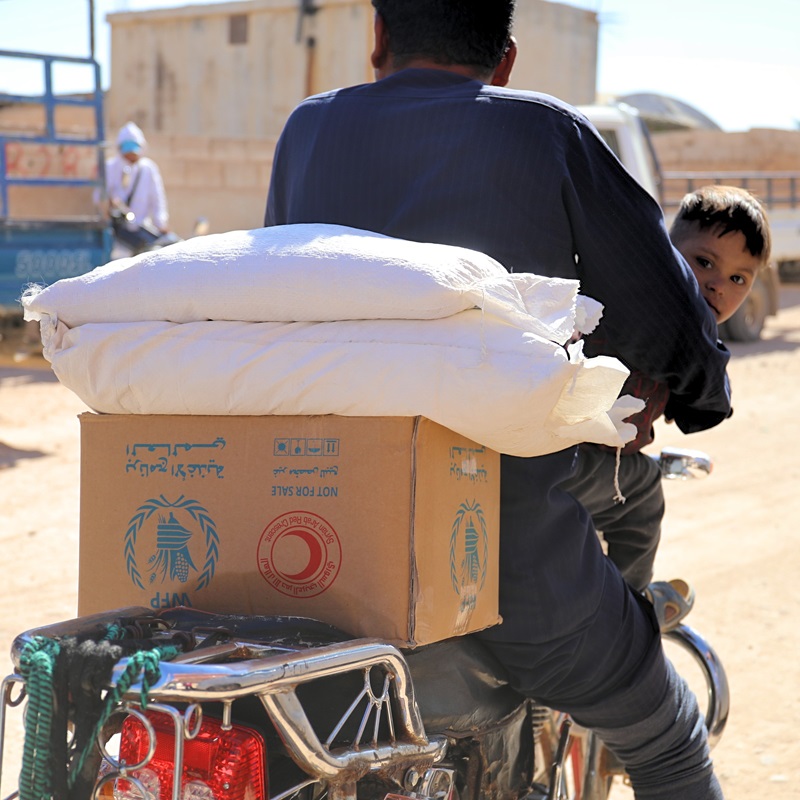Beirut: displaced fleeing Israeli offensive fuels tensions between Christians and Shia
The displacement of refugees from the war between the Jewish State and Hezbollah and the political-community tensions threaten the country's stability. The Maronite Patriarch calls for the ‘liberation’ of occupied catholic schools, but his words have triggered further controversy. The Druze community calls for ‘hospitality’. Walid Jumblatt: ‘The war seems destined to be prolonged’.
Beirut (AsiaNews) - The Israeli offensive launched on 23 September has plunged Lebanon into deep chaos. And if, at the moment, the priority is reserved for the relocation of the hundreds of thousands of displaced people, at the same time there are a series of other problems that must be tackled with the same urgency: the drama of food security, health care and the school year for the pupils of all schools and grades, public and private.
In this regard, the expropriations and invasions of private property, the illegal constructions in some villages and the forced occupations of Beirut's educational institutes severely test the resilience of the social bond between the displaced Shiites and the Christian community hosting them. At the same time, they pose a serious threat to internal stability in the medium term.
With regard to this very sensitive issue, the vice-president of the Shia High Council, Sheikh Ali el-Jhatib, reacted vehemently in recent days to a verb used by the Maronite primate in his Sunday homily. The public schools used to house the thousands displaced by the war between Israel and Hezbollah must be ‘liberated’ and returned to their educational vocation, the patriarch and Card. Beshara Raï in his speech at the centre of the attacks.
In circles close to the cardinal, attempts are being made to downplay the significance of the word used. It, they explain from Bkerké, should be placed in a context, and according to a meaning, purely civil, assuring at the same time that it has been interpreted ‘incorrectly’, as if there was a desire to forcibly expel displaced families from private Catholic schools.
An episcopal source in the Maronite patriarchate explained to AsiaNews: ‘It is obvious that alternative accommodation must be found for the families before these schools are reopened to pupils. But it is equally obvious that it is everyone's responsibility to look for and find these places'.
In fact, some schools in Beirut, such as the Saint-Vincent de Paul school run by the Daughters of Charity in rue Clémenceau, and the school run by the Sisters of Saint Joseph de l'Apparition, both belonging to the Latin community, have been occupied without any qualms by the displaced Shiites.
The assault is also linked to the panic caused by the evacuation order issued by the Israeli army (IDF) to the inhabitants of the southern suburbs of Beirut. Two other schools, one belonging to the Greek Orthodox community in the capital and the other to a secular mission are in the same situation, sources connected to the institution said.
‘The office of the headmaster of the Saint-Vincent de Paul school was violated,’ the source said. ‘Some nuns,’ the Maronite Episcopal source continued, ’have been kicked out of their rooms. However, an independent voice assures AsiaNews that this has not prevented the nuns and staff at the facility from being extremely helpful. Nevertheless, it must also be added that the 800 displaced people occupying the facility prevent as many families from sending their children to school and attending classes.
‘If neglected, the issue of the evacuees will become a source of social and economic problems for citizens,’ Patriarch Raï warned. “Private property and coexistence,” he added, ’must be protected. These few incidents, such as the blockade of illegal buildings in Lassa, a Shia village in the Jbeil region, or the resistance to the order to evacuate a disused hotel on Hamra Street in Beirut, are symptomatic of the chaos into which the Israeli offensive has thrown Lebanon.
In Dékouané, a northern suburb of Beirut, a Christian political stronghold, the presence of a truck carrying sandbags near the state-run hotel school, which has been turned into a reception centre, raised the fears of a deputy of the Lebanese Forces, Razi Hage.
The Christian politician said he ‘fears the reconstitution of a Hezbollah “security perimeter”’. According to the information provided, the sacks, transported by the international NGO Action contre la Faim (Action Against Hunger), were to be used to install water tanks on high ground.
Druze mediation
So far, friction has been contained. However, since the police cannot be everywhere, the Druze community has seen fit to take the initiative and establish some rules for the reception of displaced persons, which the municipalities are obliged to enforce. To this end, a general meeting of the Druze was held on 2 November in Baadaran (Chouf), where their ‘wise men’ live, in the presence of all the rival political leaders of the community, in particular Walid Joumblatt and Talal Arslan.
‘We do not accept any security breach, whatever its origin. We are working with the army and the security forces to ensure stability,' said Sheikh Akl of the community. The Druze leader also stressed the importance of the ‘principle of hospitality’, warning against the risk of massive land purchases by middlemen, which would alter the demographic balance in the Druze mountains.
For his part, the former leader of the Progressive Socialist Party (SPP), Walid Jumblatt, declared: ‘The war seems destined to continue’. Therefore, he concluded, ‘we must be ready to offer the maximum number of services to both the displaced and the residents’.
28/12/2024 10:54







.png)










